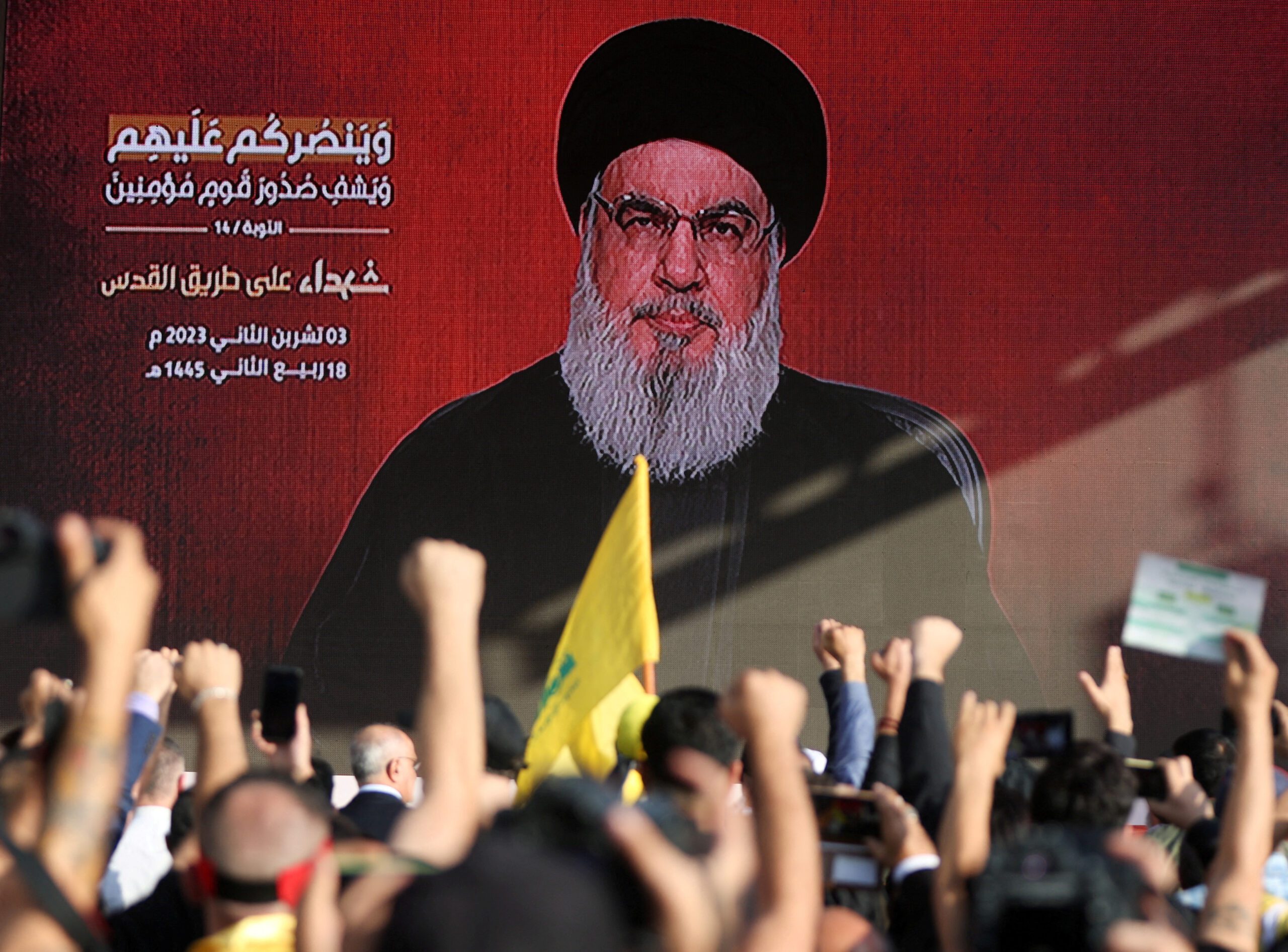Nearly one month since the start of operation Al-Aqsa Flood on October 7, Hezbollah Secretary General Hassan Nasrallah finally took to the podium for his long-awaited speech in a ceremony to celebrate the death of Hezbollah operatives while fighting against Israeli occupation forces along Lebanon’s southern border.
Nasrallah’s only public statement since October 7 came in the form of a publicized handwritten letter, in which he requested that all Hezbollah operatives be addressed as “martyrs on the road to Al Quds.”
Nasrallah began his speech by giving historical context to the Al-Aqsa Flood operation, citing the 75 years of Zionist expansion and violence. Nasrallah expressed deep sympathies for the Palestinian struggle, before delving into the details of Al-Aqsa Flood.
More specifically, he stated that the operation was a result of a purely Palestinian decision, and that Hezbollah had no prior idea of its undertaking. Nasrallah addressed rumours about the “axis of resistance” having prior knowledge of the operation, citing that these were false and unfounded, stating that the group only gained knowledge of the operation as it was happening.
He went on to blast the U.S. government, the Western world and the “so-called” international law, assigning full responsibility of the current developments on the U.S., citing its obstruction to a ceasefire and its direct complicity in the ongoing onslaught.
Nasrallah went on to delineate the specific strategic objectives for the upcoming period: The first objective consists in a ceasefire in Gaza, while the second objective is the victory of the resistance in Gaza, particularly a victory for Hamas.
He called on the international community to pressure for the achievement of the first objective at least, and called for the opening of the Rafah crossing and the entry of humanitarian aid.
On the resistance front, he praised Iraqi and Yemeni forces who have been sending rockets and drones despite their own harsh conditions.
The Lebanese Front
Finally, Nasrallah addressed the Lebanese front and asserted that they had already entered the fighting on October 8 – the 2nd day of the Al-Aqsa Flood operation – reiterating once again that they had no prior knowledge of it in an attempt to express that Hezbollah was very quick to take action.
He then proceeds to explain that while the current development might seem modest, they’re “very big and very important” if one looks at them objectively. He adds that this round of fighting in the south is unprecedented since 1948.
Strategic Gains
Nasrallah then mentioned three key strategic gains of the current operations in the south.
First, he mentioned that the operations were able to attract a large portion of the Israeli forces to the north – creating a strategic distraction away from Gaza, who has suffered tremendous losses since the onset of Israeli aggressions.
Specifically, this included one third of the Israeli army including elite and regime forces, half of navy forces, one quarter of Israeli air forces, around half of Israeli technological military systems and one third of logistical forces.
Second, he mentioned the migration of thousands from Israeli northern settlements, estimating the clearance of about 34 settlements. Nasrallah stressed on the psychological and economic strain this is causing the occupation’s government, and its importance in leading to a ceasefire in Gaza.
Third, he explained that the operations in the South and especially in the Chebaa farms have caused panic and fear at the level of Israeli political and military leadership and raised concerns of further escalation or of a wide conflict.
Warning
Finally, Nasrallah warned Israeli forces that if they conduct a preemptive strike on Lebanon, it would be an act of great “stupidity”.
He ended the speech by claiming that all possibilities are open and that all options are on the table, including the possibility of escalation into war, which is “realistic and probable” should aggressions continue.
Nasrallah concluded by addressing the American naval presence in the region and asserting that Hezbollah is geared up to strike the American vessels, by stating their failures in the region and across the world.


